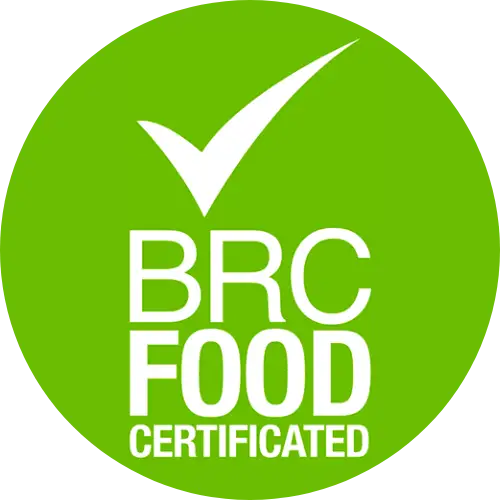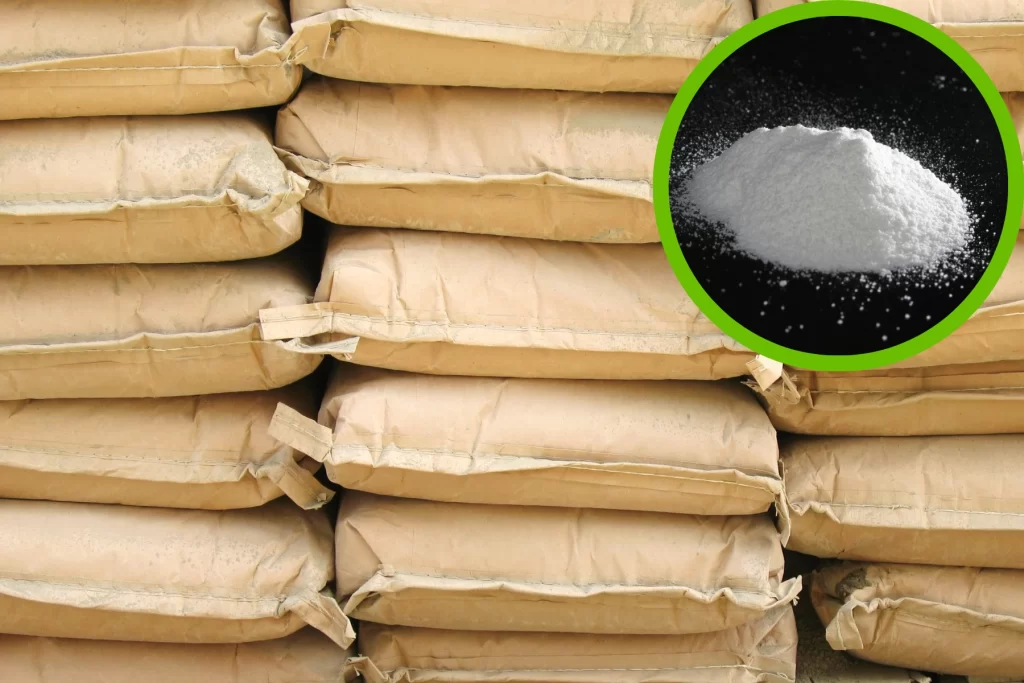food grade carboxymethyl cellulose
We Are a Leading Manufacturer of Food Grade Carboxymethyl Cellulose (CMC), Dedicated to Setting Industry Benchmarks in Quality and Purity. As an Essential Ingredient, Our Cmc Is Favored by Food Manufacturers Globally for Its Remarkable Thickening, Stabilizing, And Emulsifying Properties. Produced Under Stringent Safety and Hygiene Standards, Our Product Ensures Consistency, Texture, And Enhanced Mouthfeel in Various Food Applications. We Pride Ourselves on Delivering Solutions Tailored to Our Clients’ Specific Needs, Ensuring Product Excellence Every Time. Partner with Us, And Experience the Difference of Premium Quality Cmc in Elevating Your Food Products.







Sodium carboxymethyl cellulose (CMC or cellulose gum) is a versatile cellulose ether. Easily soluble in both cold and hot water, it boasts maximum yield, making it the most popular and user-friendly cellulose product. Derived primarily from refined cotton and wood pulp, its application in the food industry typically ranges between 0.2% to 0.5%. When compared to similar hydrocolloids, food-grade CMC stands out for its strong acid tolerance, high resistance to salt, and exceptional transparency. Moreover, it dissolves quickly, resulting in a smooth consistency with minimal undissolved fibers.
Carboxymethyl cellulose (CMC) plays a multifaceted role in food and beverage processing. It acts as a thickener, stabilizer, fortifier for tenacity, moisture-retaining agent, dispersant, binding agent, suspending aid, and film-forming agent. You’ll find its presence in an array of products including ice cream, juices, jams, dairy items, beers, fermented drinks, yogurts, syrups, baked goods, wines, condiments, seasonings, and various meat products.
FOOD GRADE CMC FEATURES
Carboxymethyl Cellulose (CMC) primarily serves as a thickener, stabilizer, texturizer, moisturizer, dispersant, adhesive, suspending agent, film-forming agent, and more in food and beverage processing. Its applications span a wide range of products, including ice cream, juices, jams, dairy products, beer, lactic acid drinks, yogurt, syrups, baked goods, alcoholic beverages, sauces, seasonings, meat products, candies, chocolates, pastries, sodas, desserts, cereals, and snacks.
Food-grade CMC plays a pivotal role in controlling crystal sizes in frozen foods and preventing separation between oil and water layers. Particularly in acidic systems, CMC sodium offers commendable suspension stability in acid-resistant foods, significantly enhancing solution steadiness and protein resistance. Sodium Carboxymethyl Cellulose not only refines taste and texture but also curtails dehydration shrinkage in foods, boosting their quality and extending their shelf life.
Thickener
CMC increases the viscosity of solutions, providing a thicker texture. This helps in enhancing the mouthfeel and consistency of foods and beverages.
Stabilizer
CMC helps maintain uniform dispersion of components, preventing separation. It's essential in products like salad dressings or sauces to ensure consistent quality.
Texturizer
CMC modifies the mouthfeel and structure of foods. It can make products smoother or provide a certain desired texture, enhancing the overall eating experience.
Humectant
CMC attracts and retains moisture effectively, preventing foods from drying out quickly. It's vital for maintaining optimal freshness in baked goods and snacks.
Dispersant
CMC helps to efficiently distribute particles evenly throughout a solution or mixture. This ensures a consistent, uniform taste and appearance in products.
Adhesive
CMC can bind different ingredients together, ensuring they don't separate during processing or storage. It's often used in baked goods to hold ingredients together.
Suspension Agent
CMC prevents solid particles from settling at the bottom of liquids, maintaining an even distribution of components in beverages and sauces.
Film Former
CMC forms a protective layer on the surface of foods, preserving freshness or providing a finish, like a glossy appearance on candies or baked items.
FOOD GRADE CMC SPECIFICATION
Food-grade Carboxymethyl Cellulose (CMC), with the CAS No: 9004-32-4, is a crucial ingredient in the food industry, ensuring product quality and safety. Our CMC is categorized into two types: Type 6, which is a common form with a degree of substitution (DS) ranging from 0.75 to 0.9, and the more acid-resistant Type 9, with a DS above 0.9, boasting superior stability. With a purity well exceeding 99.5%, our product meets stringent standards, including GB1886.232-2016, E 466, and FCC IV. Such high purity levels are vital for maintaining food safety and quality, making our food-grade CMC an indispensable additive for a myriad of food applications.
| Type Indicator | Acid-resistant | Conventional or Regularity | |||
| FH9 | FVH9 | FH6 | FVH6 | ||
| Appearance | White Powder | ||||
| Degree of Substitution | ≥0.90 | ≥0.90 | 0.65-0.85 | 0.65-0.85 | |
| Viscosity (mPa.s) | 2.79% | ≤1200 | ≥1200 | ≤1200 | ≥1200 |
| Chloride (%) | ≤1.80 | ≤1.80 | ≤1.80 | ≤1.80 | |
| PH (77°F) | 6.0~8.5 | 6.0~8.5 | 6.0~8.5 | 6.0~8.5 | |
| Moisture (%) | ≤7.0 | ≤7.0 | ≤10.0 | ≤10.0 | |
| Purity (%) | ≥98.5 | ≥98.5 | ≥98.5 | ≥98.5 | |
| Heavy Metals (Pb) (%) | ≤0.002 | ≤0.002 | ≤0.002 | ≤0.002 | |
| Arsenic (%) | ≤0.0002 | ≤0.0002 | ≤0.0002 | ≤0.0002 | |
| Iron (%) | ≤0.03 | ≤0.03 | ≤0.03 | ≤0.03 | |
| AVR | ≥0.85 | ≥0.85 | N/A | N/A | |
food grade carboxymethyl cellulose applications
Food grade Carboxymethyl Cellulose (CMC) is a versatile additive used extensively in the food processing industry. Its applications span a broad range of products, ensuring improved texture, stability, and appearance. You’ll find it in beverages, enhancing the mouthfeel and stability. It’s a key ingredient in frozen treats like popsicles and ice cream, contributing to creaminess and preventing ice crystal formation. Yogurts benefit from CMC by gaining a smooth and consistent texture. Meat products, when infused with CMC, retain moisture better and have an improved shelf life. Bakery items like bread achieve a better volume and softer crumb with CMC. It’s used in alcoholic beverages to enhance viscosity and in jellies and candies for a desirable gel strength and chewiness. Biscuits, cookies, instant noodles, and pasta have CMC to thank for their perfect firmness and non-sticky quality. Jams use CMC to prevent syneresis, while vegetarian dishes and pastes enjoy an improved binding and texture with this food-grade additive.

- Marshmallows: CMC not only prevents dehydration and shrinkage of the product but also contributes to a more airy structure. When combined with gelatin, it can significantly increase the viscosity of the gelatin. A high molecular weight CMC (DS around 1.0) should be selected.
- Ice cream: CMC has a lower viscosity at higher temperatures, and the viscosity increases upon cooling, which is conducive to the improvement of the expansion rate of the product and facilitates operation. It is advisable to use CMC with a viscosity of 250~260 mPa·s (DS around 0.6), and the reference dosage should be less than 0.4%.
- Fruit juice beverages, soups, sauces, and instant soluble drinks: Due to CMC's good rheological properties (pseudoplasticity), it delivers a refreshing taste, and its excellent suspension stability ensures uniform flavor and texture throughout the product. For acidic fruit juices, a CMC with good uniformity in degree of substitution is required. If it is further blended with a certain proportion of other water-soluble gums (such as xanthan gum), the effect can be even better. A high viscosity CMC (DS0.6~0.8) should be selected.
- Instant noodles: The addition of 0.1% CMC helps to control moisture content, reduce oil absorption, and can also enhance the glossiness of the noodles.
- Dehydrated vegetables, tofu skin, and dried tofu sticks, and other dehydrated foods: They rehydrate well and easily, and have a good appearance. It is advisable to use high viscosity CMC (with a degree of substitution around 0.6).
- Noodles, bread, and frozen foods: CMC can prevent starch retrogradation and dehydration, and control the viscosity of pastes. The effect is further improved when used in combination with konjac flour, xanthan gum, certain emulsifiers, and phosphates. A medium viscosity CMC (DS0.5 to 0.8) should be selected.
- Orange juice, pulpy orange, coconut juice, and fruit tea: Because it provides excellent suspension and support, it is even better when combined with xanthan gum or agar. A medium viscosity CMC (DS around 0.6) should be selected.
- Soy sauce: The addition of salt-tolerant CMC to adjust its viscosity can make the soy sauce have a delicate and smooth taste.
- Vegetarian Burgers:CMC is used to enhance the texture, stability, and shelf life of vegetarian burgers, making them more palatable and easier to handle during cooking and consumption.
food grade carboxymethyl cellulose faq
Food Grade Carboxymethyl Cellulose (CMC) is a versatile additive used extensively in the food industry. Recognized as safe and effective, CMC serves as a thickener, stabilizer, and emulsifier in a variety of products including ice cream, baked goods, and dressings. Derived from natural cellulose, it is suitable for a wide range of dietary needs, including vegan and vegetarian diets. This FAQ aims to address common questions on CMC’s applications, benefits, and usage to inform and reassure customers about the quality and safety of their food.
Yes, food grade CMC has been approved by various international food safety authorities, including the FDA and EFSA, for use in food products within specified limits.
It is widely used in ice creams to prevent crystal formation, in bakery items to improve texture and volume, and in sauces and dressings as a thickener and stabilizer.
It is used by dissolving in water, where it acts as a thickening agent. It can also be mixed with dry ingredients before being added to food products.
The benefits include improved texture, increased shelf life, stabilization of emulsions, and prevention of ice crystal formation in frozen products.
Yes, since it is derived from cellulose, which is plant-based, it is suitable for vegan and vegetarian diets.
Unlike gelatin, which is animal-based, CMC is plant-based and thus suitable for a wider range of diets. It also tends to be more stable over a range of temperatures and pH levels compared to starch.
CMC is tasteless and odorless, so it does not affect the flavor profile of food products.
It should be stored in a cool, dry place away from strong odors and direct sunlight to maintain its quality and efficacy.
Our food-grade carboxymethyl cellulose is exported worldwide, with the highest exports to Iran and Uganda.
contact us
For premium-quality Food Grade Carboxymethyl Cellulose or any inquiries regarding its use and benefits, our team of experts is readily available to provide you with comprehensive assistance and information. Please feel free to reach out for specialized support tailored to your needs.








